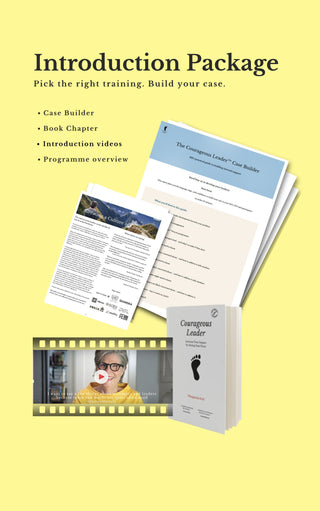Imagine if every project you ran went smoother than a hot knife through butter, where each team member felt heard, understood, and motivated. Does that sound like a dream? Well, it’s totally achievable. Improving your management techniques isn’t just about keeping the ship steady; it’s about ensuring everyone rowing in harmony toward the same destination.
Whether you’re leading a small team or leading a large enterprise, refining your management style can profoundly impact your collective success. Today, we’ll share some strategies to help you enhance your management game and foster an engaged, productive, and genuinely happy team. Let’s take a look.
Dive Deep into Understanding Your Team
To manage effectively, start by truly understanding who’s on your team. This goes beyond skills or work history. What drives them? What challenges do they face outside of work? Understanding these elements can help you foster a supportive and empathetic workplace. Try setting up regular one-on-one chats to get this insight—these meetings can work wonders in building trust.
Appreciating the mix of personalities and backgrounds everyone brings is another big win. It’s about celebrating and using these differences to your team’s advantage, making the workplace more prosperous and creative.
Remember, it’s also crucial to be all ears—active listening can help you catch things you might otherwise miss, ensuring everyone feels valued.
Set Goals That Inspire
Clear, compelling goals are the backbone of effective management. When your team knows exactly what they’re aiming for (and why), it’s easier for them to stay on track. Make sure your goals are SMART: Specific, Measurable, Achievable, Relevant, and Time-bound. This clarity helps transform vague ambitions into actionable steps.
It’s equally important to show how these goals fit the bigger picture. When people understand the purpose behind their work, their motivation levels can soar. Keep them in the loop with regular updates, and celebrate the milestones to keep spirits high.
Cultivate Collaboration
A collaborative team is a powerful team. By encouraging your team members to share ideas and work together, you tap into a pool of shared knowledge and creativity that can lead to better results than working in silos ever would. Use tools and technology to keep everyone connected, especially if some team members are remote. Platforms like Slack or Microsoft Teams can be your best friends here.
Cultivating a culture where respect and openness are the norms is vital. Ensure everyone feels comfortable sharing their thoughts and that their contributions are appreciated. This kind of environment not only nurtures existing talent but also makes your team an attractive place for future superstars.
Offer Feedback That Fuels Growth
Feedback is a cornerstone of excellent management. When done right, it can help steer your team in the right direction and encourage personal growth. Remember to give timely feedback focused on specific actions or behaviors rather than individual traits. This approach keeps the conversation constructive and focused on development.
Encouraging a culture where feedback flows both ways is also essential. By welcoming input on your leadership, you show that you’re committed to growth just as much as your team is. This can dramatically boost transparency and trust within the team.
Invest in Your Team’s Growth
Showing your team that you’re invested in their growth is a game-changer. Tailor training and development opportunities to match team needs and goals. This could range from workshops and seminars to more informal mentoring sessions. Seeing the company invest in its growth can do wonders for an employee’s motivation and loyalty.
Promoting a mindset of continual learning and development helps keep your team up-to-date and eager to push their boundaries. This benefits their careers and enriches your team’s skill set, driving your whole company forward.
Be Agile and Adaptable
The only constant in life is change, and that’s doubly true in the business world. Being adaptable as a manager means staying open to shifting strategies and approaches when necessary. It’s about leading by example, navigating changes smoothly, and viewing challenges as innovation opportunities.
Equip your team with the right tools and mindset to embrace change. This includes training in new technologies and fostering a culture where change is viewed as a stepping stone to better things, not a roadblock.
Create a Positive Work Environment
Your work atmosphere can significantly impact your team’s performance and satisfaction. Strive to build a workplace where fairness, respect, and integrity aren’t just buzzwords but embedded in day-to-day interactions. Recognize achievements, celebrate successes, and ensure reasonable workloads to keep your team motivated and focused.
Encouraging a healthy work-life balance is also crucial. When employees feel their time is respected, they’re more likely to come to work refreshed and ready to contribute their best.
Conclusion
Improving your management techniques is a dynamic and ongoing process. Each strategy we've discussed will help you build a more responsive, motivated, and cohesive team.
By integrating these into your management approach, you can enhance your leadership skills and create an environment where your team can thrive and achieve its full potential. Ready to lead the way?
Read More:Leadership Workshop Activities


